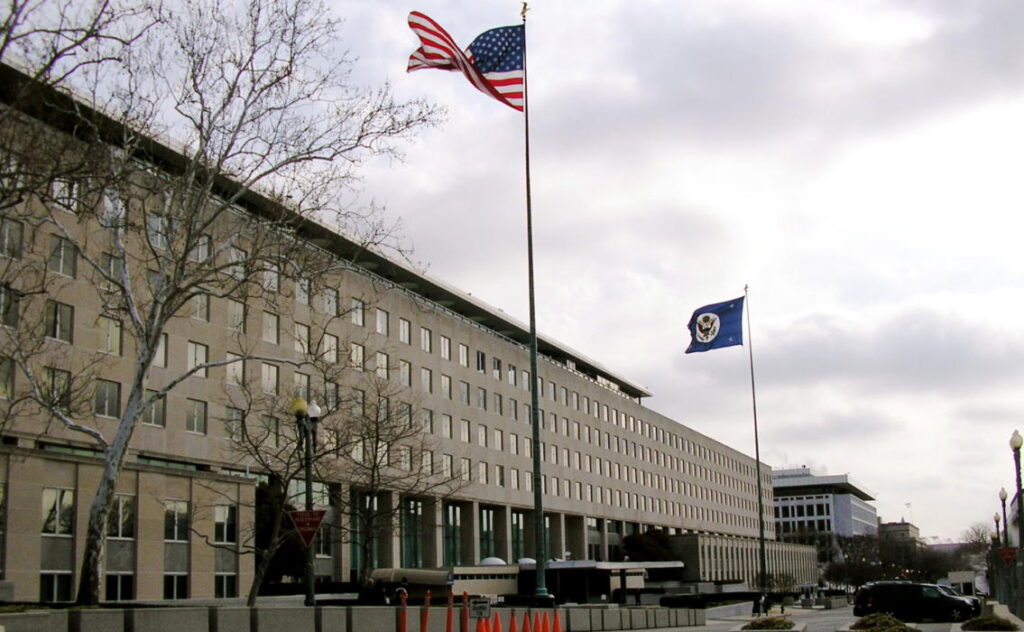.
The US sided with Saddan Hussein, Syria sided with the Ayatollahs of Iran – History of Modern Warfare Iran Iraq War 1980-1988 (VIDEO). In US foreign policy, will Obama-Clinton finish the job where Saddam failed? Fighting Iran through Syria.
Bashar’s father Hafez al-Assad was brutal but never used chemical arms by Robert Fisk
(Independent) – Someone from the Canadian Broadcasting Corporation called me up this week to talk about the use of chemical weapons by Hafez al-Assad in Hama during the Sunni Muslim uprising in the city in 1982. Their sources were the same old UMIS (unnamed military intelligence sources). But I happened to have got into Hama in February 1982 – which is why the Canadian was calling me – and while Hafez’s Syrian army was very definitely slaughtering its own people (who were, by the way, slaughtering regime officials and their families), no one ever used chemical weapons.
Not a single soldier I saw in Hama carried a gas mask. No civilians carried gas masks. The dangerously perfumed air which I and my colleagues smelt after chemicals were used by our (then) ally Saddam against Iranian soldiers in the 1980s was not present. And none of the dozens of civilian survivors I have interviewed in the 30 years since 1982 ever mentioned the use of gas.
But now we are to believe that it was used. And so the infantile new fairy tale has begun: Hafez al-Assad used gas against his own people in Hama 30 years ago. So his son Bashar may do the same again. And wasn’t that one of the reasons we invaded Iraq in 2003 – because Saddam had used gas against his own people already and may do so again?
From my comment @Juan Cole’s blog – Syria Rebels make Advances as Hillary Clinton calls for ‘a Concerted Push’ for Democratic Transition (Videos)
Thanks for the report and link. Recently in my comment I pointed to this falsehood so easily made to hype a very bad situation.
The presence of chemical grenades in Syria was well known. I don’t understand why the two super powers US and Russia wasted two years to realize the danger for WMD’s falling into the hands ot jihadists. Unfortunately, the only nation that would may find itself as a target would be Israel.
Report: Netanyahu agreed to full Golan Heights withdrawal
(Ynet News) – The onset of the rebellion against Bashar Assad in January 2011 interrupted intense negotiations between the Syrian president and Prime Minister Benjamin Netanyahu, during which the latter agreed to a full Israeli withdrawal from the Golan Heights. US documents reveal Israel agreed to return to June 4, 1967 lines in exchange for peace agreement.
In the spring of 2010, Netanyahu and Defense Minister Ehud Barak launched secret indirect negotiations with Assad through American mediator Frederick Hoff, a former commander in the Marines and an expert on border demarcation in disputed areas.
Earlier this week Hoff resigned from his post as special US envoy to the Middle East. According to the Yedioth Ahronoth report, documents written by Hoff suggest that the negotiations were based on Netanyahu’s willingness to return to the June 4, 1967 lines, giving Damascus full control of the entire Golan Heights area. Israel captured the territory in the 1967 Mideast war.
American businessman and Netanyahu associate Ronald Lauder reportedly negotiated a similar deal in 1998, during Netanyahu’s first term as premier. At the time, Netanyahu denied that claim. Netanyahu’s successor, Ehud Barak, also offered a Golan withdrawal for peace, but the talks failed.
According to the documents written by Hoff, the discussions were held at the prime minister’s official residence in Jerusalem. Netanyahu and Barak kept the talks a secret, but in early 2011 a Kuwaiti newspaper reported that special US envoy Dennis Ross met Syrian Foreign Minister Walid Moallem and said that Damascus was willing to resume talks with Israel and that the Jewish state was willing to return the Golan Heights. The Prime Minister’s Office denied the report.
Syria’s missile build-up as a deterrent to its primary adversary, Israel.
Syria’s relations with Iran, U.S.
(MSNBC) Feb. 3, 2009 – Syria and Iran have had an alliance for three decades and in 2006, they signed an agreement on military cooperation.
The alliance was formed in 1980 when Syria sided with Iran in its 8-year war with neighboring Iraq — an unpopular war among most Middle Eastern countries.However, the two nations have had their disagreements, including Iran’s recent claim that it would investigate the assassination of a top Hezbollah commander Imad Mughniyeh who was killed in Damascus.
Syria has had a strained relationship with the Bush administration. The Israel-Syria talks go against the U.S. policy of limited communication with Syria.
“We hope that this is a forum to address various concerns we all have with Syria’s support of terrorism, repression of its own people, and so we will see how this progresses,” said White House spokeswoman Dana Perino in response to news of the talks.
According to Paul Salem, director of the Carnegie Middle East Center,”The development on the Syrian-Israeli front, while flying in the face of Bush policy, might actually end up bringing Syria further away from Iran and closer to U.S. allies in the region and be a U.S. gain in the long term.”
